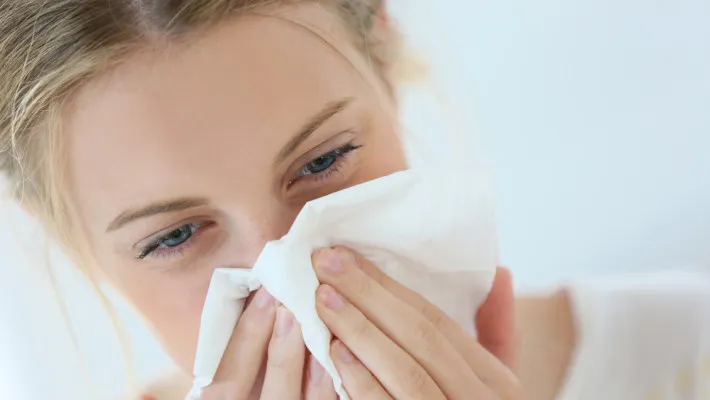Are your sinuses coming down with an infection or reacting to allergies? Common cold and allergies share very similar symptoms, like coughing, sneezing and congestion, and hence, it becomes difficult to figure out, if you should tough it out or take anti-allergy medications. Here are some general guidelines to help you distinguish between the two, however, seeking help of medical professional should be the best strategy to confirm the diagnosis.
Cold or Allergies? Ask yourself the following!
1. Do you have a runny nose?
A runny nose can be caused by both allergies and a cold. But if, over the course of few days, the thin, watery mucus becomes thick and discolored yellow or green, then you are possibly affected by a respiratory infection.
2. Do you have itchy eyes?
Itchiness is often caused by allergies. Most of the allergy symptoms are present on both sides of the body. To distinguish that your itchy and red eyes are not caused by viral conjunctivitis (aka pink eye), its best to check in with your doctor.
3. Do you have aches and pains?
A low-grade fever ,with or without generalized uncomfortable body aches, usually accompany colds. Sore throat and swollen glands are common with cold and not present with allergies.
4. How fast did it occur?
Sudden onset of symptoms with watery eyes, sinus mucus or congestion out of nowhere, is possibly the result of allergies. Symptoms of a cold occur gradually unlike, allergies which are sudden in onset.
5. How long have you been feeling bad?
Colds typically last from a few days to two weeks. However, allergic reactions can persist for as long as the allergen exposure is present, like cat dander or sagebrush.
6. What time of year is it?
Allergies tend to come during the change of seasons, with pollen exposure specifically in the spring, summer or fall. Colds can occur anytime of the year but tend to come on in the winter months. However, dust mite, mold and animal dander allergy can be present all throughout the year. Staying indoors during cold season increases the exposure to these allergens. If you notice that your symptoms occur the same time every year, they’re likely caused by allergies.
If you are still not sure of what’s the reason of your “sniffly” nose, see your primary care doctor or book an appointment with an allergist to help you feel and breathe better.


